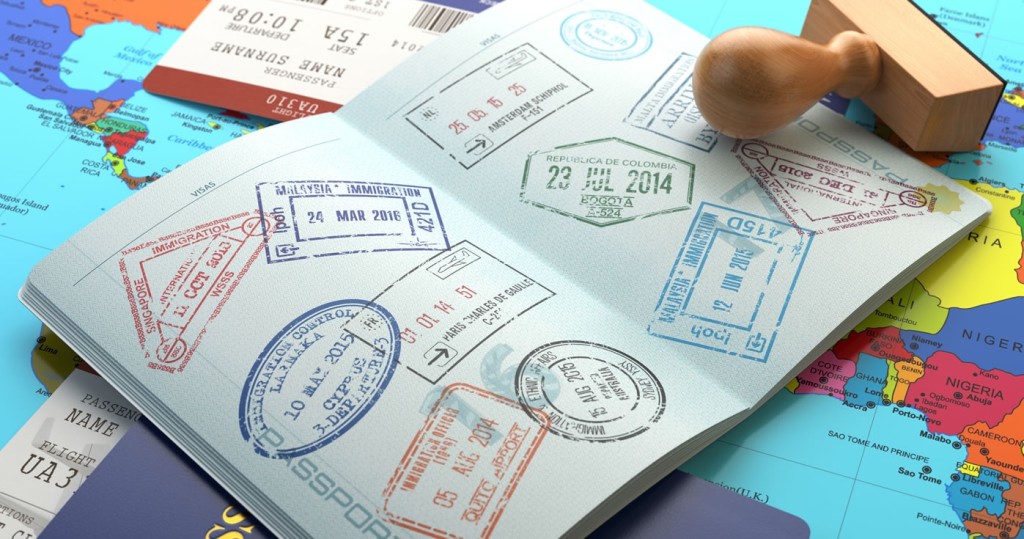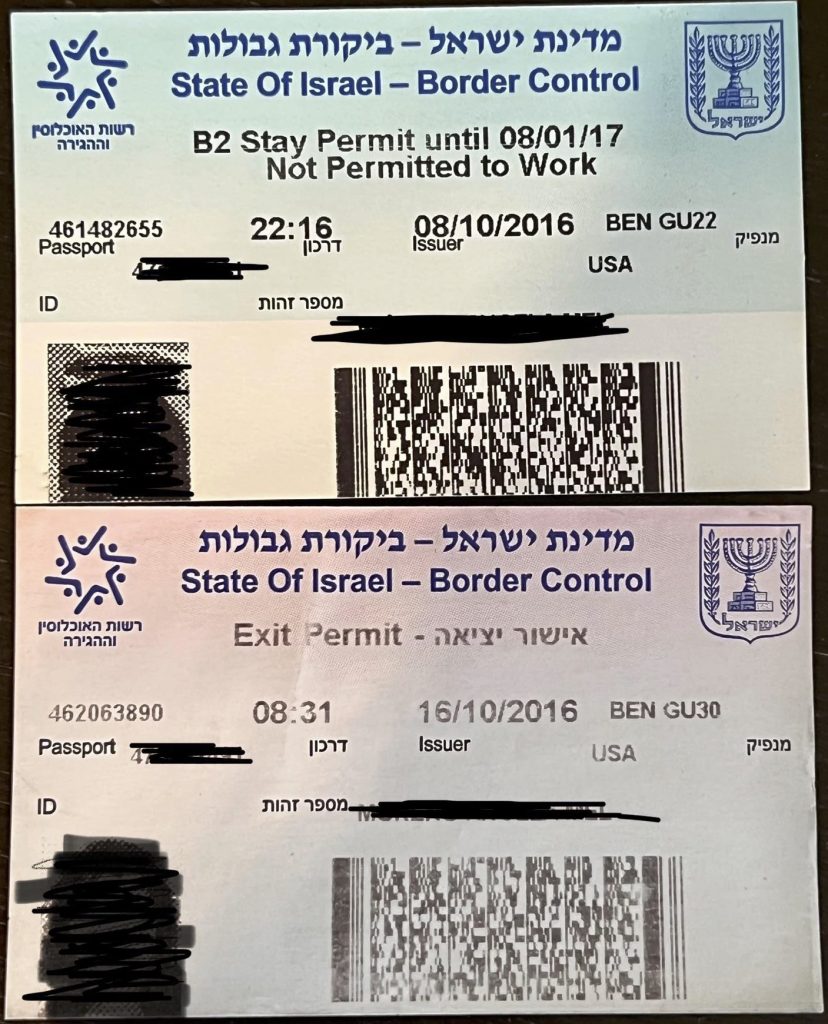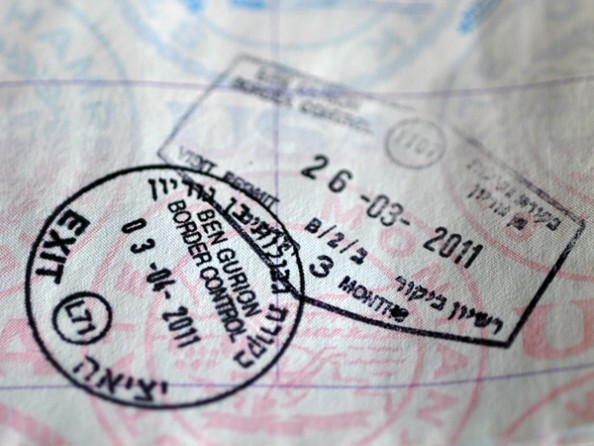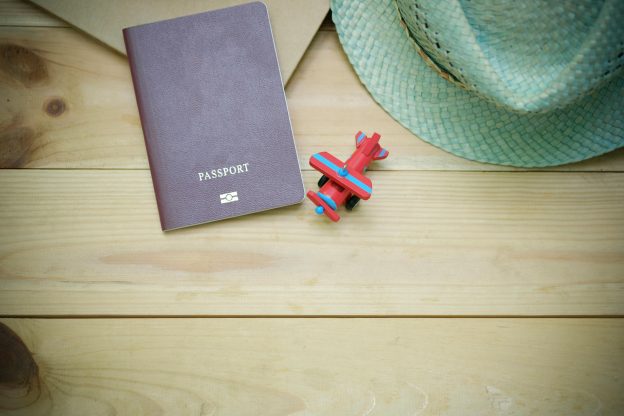It is currently impossible to travel to Palestine, specifically the West Bank, without encountering the Israeli authorities, as Israel controls the borders. This can be a daunting prospect for anyone visiting Palestine. There are plenty of rumors, stories, and varying accounts of what to expect. It is important to be prepared for the likely scenario of border security staff asking one or two questions. However, there is no reason to worry unnecessarily.
Most visitors have no problems gaining entry to Israel or the West Bank. The most common concern for travelers is usually the possibility of receiving an Israeli visa stamp in their passport. We hope that the information contained within this article will help to alleviate your apprehensions.
Table of Contents
Getting an Israeli Stamp on Your Passport
The implications of receiving an Israeli stamp in their passport are often of great concern to those who wish to visit Palestine or Israel. Many volunteers and students coming to Internship in Palestine are aware of the complications related to having an Israeli stamp on their passports. Some have heard rumors that having this stamp will severely limit their travel options or make them a target for detainment or expulsion from certain countries.
To put a rest to rumors and provide potential volunteers and visitors with the facts, we will discuss here the visa policies of Israel and the impact of having an Israeli stamp on your passport.
Receiving an Israeli visa or stamp on a passport
For many years, visitors to Israel, would receive an Israeli visa or stamp on their passport, just as they would if they visited any other country. This is whether they entered via air from Ben Gurion International Airport in Tel Aviv or by one of the border crossings with Jordan or Egypt
The impact of this was the potential limiting of travel options for foreign visitors. Before the foundation of the State of Israel, the Arab League imposed a boycott of the Jewish community in the former Mandate of Palestine. This boycott was carried over and intensified after the founding of Israel and the wars that followed.
One aspect of the boycott is that participating countries will deny entrance to their country to Israeli citizens and passport holders. A smaller number will deny entry to anyone with an Israeli stamp in their passport or evidence of entering the State of Israel. Sometimes, this could include stamps from other countries, such as a Jordanian exit stamp at the Allenby Bridge (the Jordanian-Israeli border crossing).
Jordan, Egypt, and the Palestinian Authority signed peace agreements with Israel and no longer participate in the boycott. Mauritania never applied the boycott, and Algeria, Morocco, and Tunisia did not enforce it. The UAE signed a peace agreement with Israel in 2020, normalizing relations with Israel. UAE and Israeli citizens may now travel freely between both areas. However, other Arab and Muslim nations, including Iraq, Lebanon, Libya, Sudan, Syria, Yemen, Iran, and most of the Gulf Cooperation Council (GCC) members, will still deny entry to travelers with an Israeli stamp.

Do I get a stamp or visa from the Palestinian authority?
The Palestinian Authority does not control the state borders of Israel. It is not responsible for issuing visas or stamping passports. The visa that internationals receive upon arrival to Israel is all they’ll need to travel to or around Palestine and Israel.
Israeli visa on separate pieces of paper
Israel recognizes this dilemma and the inconvenience it can cause to visitors. Israeli visa slips issued on separate pieces of paper with entry and exit records. 2D barcodes were introduced in January of 2013.
Those traveling through Ben Gurion Airport today can expect to receive one of these slips. The implementation of this process has been slower at border crossings. Jordanian border crossings are supposed to issue the slips. However, volunteers have overheard stories of foreigners receiving stamps at these crossings as recently as 2015. If you exit via the land border of Jordan or Egypt and would rather not receive an Israeli exit stamp in your passport, it is possible to ask the Immigration Officer to stamp the blue slip issued by Israel. Instead of putting a stamp in your passport, the officer can stamp the blue slip. Remember to make your request before you hand the officer your passport.
Our volunteers get their Israeli visa on paper and not stamped on their passport
Volunteers, interns, and students in Palestine at Internship in Palestine receive a visa slip. They do not need to worry about any impact on their future travel plans. However, if by some chance one should find themselves with an Israeli stamp in their passport there is a relatively easy solution.
For a fee, most people can receive a new passport from their government. They can even get an emergency one from their country’s embassy if travel plans necessitate it. Some nations allow citizens to hold two separate passports. This includes countries like Austria, Canada, Finland, France, Germany, Ireland, The Netherlands, New Zealand, Poland, Portugal, Russia, South Africa, Spain, Sweden, Ukraine, UK, and USA. This means one could simply keep one passport for traveling to Israel. Then, one can have another for traveling to countries like Saudi Arabia or Lebanon.


A Visitor’s Experience
Tara, from the UK, visited Palestine in February 2020 and traveled through most of the West Bank. She says: “I had previously traveled to several Middle Eastern countries. I was anxious that stamps from places such as Jordan and the UAE might negatively affect my chance of being accepted upon my arrival at Ben Gurion. Also, I was keen not to receive an Israeli visa stamp in my passport in case this meant that I would not be able to visit other Arab countries in the future.
I need not have worried as there was no problem at all. I did not have my passport stamped. Instead, I was given the Israeli visa on a blue slip of paper, as were all the other group members traveling with me. I was granted entry by an Israeli border official after answering two simple questions. The first one was about where I would be staying and the second asking about my job title.
The return journey elicited more in-depth questioning. This included why I visited Jordan, who I knew there when I last spoke to them, and what about. But I answered all the questions calmly and truthfully and was allowed to go on my way. I kept my passport and visa slip with me at all times during my trip to Palestine. It was often necessary to show both of these documents at the various checkpoints. There were never any problems for me in gaining access to anywhere in the West Bank.”
Final Remarks about Israeli Visa
There are a lot of rumors about traveling to Palestine or Israel and the effect of an Israeli passport stamp on future travel plans. It is important to seek out correct and truthful information and disregard the falsehoods. There have been problems traveling to Israel and Arab nations using the same passport in the past. However, the vast majority of today’s travelers should have no such issues.
Internship in Palestine will always endeavor to provide accurate and up-to-date information to potential visitors.
Important and related articles – Please click to read
Should you have any questions, please do not hesitate to contact us at info@ecpalestine.org. We would be happy to have you in Palestine.
Find Us Online
Do you have questions about our work? Contact us:
Email: info@ecpalestine.org
WhatsApp:+972 599 479 880
Website: https://internshipinpalestine.org/
EC Website: https://excellencenter.org/
Instagram: https://www.instagram.com/excellence.center
Facebook page: https://www.facebook.com/ExcellenceCenter
Facebook account: https://www.facebook.com/RafatECHebron
Watch us on YouTube: https://www.youtube.com/channel/UCsQSLdFZWZcBm6Uj0XMYuKg
Visit and Explore Palestine: https://www.facebook.com/ExplorePalestine

